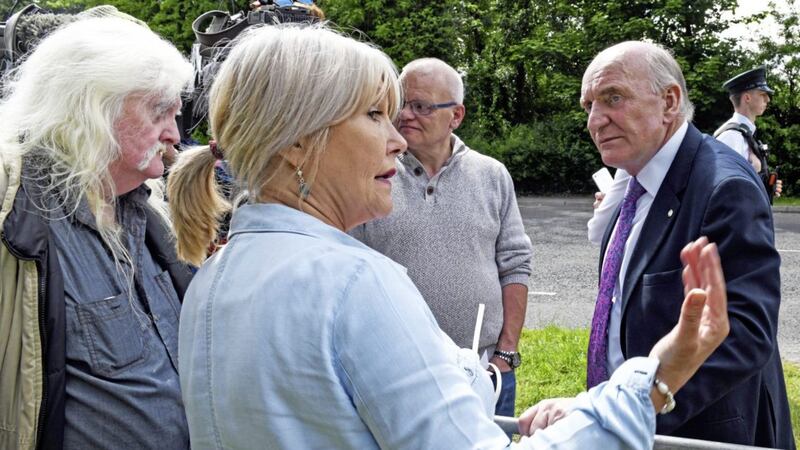THERE are some days in my working life that stand out in my memory more than others. The day I watched the faces of the victims of historical child abuse as they received the vindication they had been waiting for, delivered to them at a hotel on the outskirts of Belfast in January 2017, is one of those days I’ll never forget.
We say historical abuse, words that make it sound like something that happened many lifetimes ago, but for those adults who spent their lives living with the physical and emotional scars, it will never be historical. It will always be their present.
The Historical Institutional Abuse Inquiry report detailed widespread systemic failings in the care of children in institutions over a period of 73 years. Chairman Sir Anthony Hart summarised the inquiry’s findings and recommendations and you could tell he had been deeply moved by what he had heard during the evidence sessions, paying tribute to the courage of the victims who came forward.
“We know that for the great majority of applicants this was the first time they had described their experiences as children in residential care, even in some cases to members of their own family,” he said.
“Describing those experiences was not always easy – indeed, at times it was clearly distressing and painful – and we thank them for their courage and determination in doing so.
“We hope that in some measure the process of giving evidence helped those who were not listened to in the past.”
Everyone in that room hoped that his findings were going to give relief to those victims. Two and a half years later and more than 30 of those people have since died, without ever receiving redress in the form of compensation and an all-important care package. Many died in poverty, with little in the way of worldly possessions, worried until their final days about who would pay their funeral costs. The trauma of an abusive childhood without love or basic comfort has cut the lives of many of them short, with poor health and trauma-related illnesses. Many have been unable ever to work or hold down normal relationships due to the mental-health impact of a loveless and abusive childhood. They have been let down time and time again by every adult they ever come in contact with. The various victim-support groups, many working without funding or assistance, have tried to help as many as possible but little can be done for a broken body and a mind that has come to expect disappointment. This week they were let down once again, as a report showed they may have to wait another two years before their compensation claims are processed by a redress board – years that many simply don’t have.
I like to believe that when Karen Bradley entered politics she did so for genuine and honourable reasons. As secretary of state she has been subjected to widespread criticism for her indecisive and often ill-informed stance. She has been by all accounts one of the worst secretaries of state that have ever served here, and it was a low bar so that’s quite an achievement. There is no doubt dealing with local political parties who agree on little is a tough enough gig. But in the victims of church and state child abuse, we have a group of people who unite political opinion, a section of society whose plight crosses political barriers. This is an open goal for Mrs Bradley, a chance to leave a legacy in Northern Ireland that is not going to have people remember her for what she didn’t do but for what she did.
I do not doubt there are forces in the background advising her not to deal with the redress issue, to leave it on the table to place added pressure on politicians as they go into the next period of talks. But to use the most vulnerable section of people in our society as collateral is not just wrong. It is immoral. She can and should deal with this issue, not in a week, month or year from now, but today. Fast-track the redress board. Pay interim compensation to those in the poorest of health. Get the care package in place. Do not be the politician who follows on from the hundreds of others who failed these people all their lives. Be the one who says and does better.
I’m sure there was a reason Karen Bradley got into politics. Can she not show us that now? Can she not help these people before any more of them die a lonely and isolated death with nothing but a lifetime of bad memories and a pauper’s funeral to show for it?








